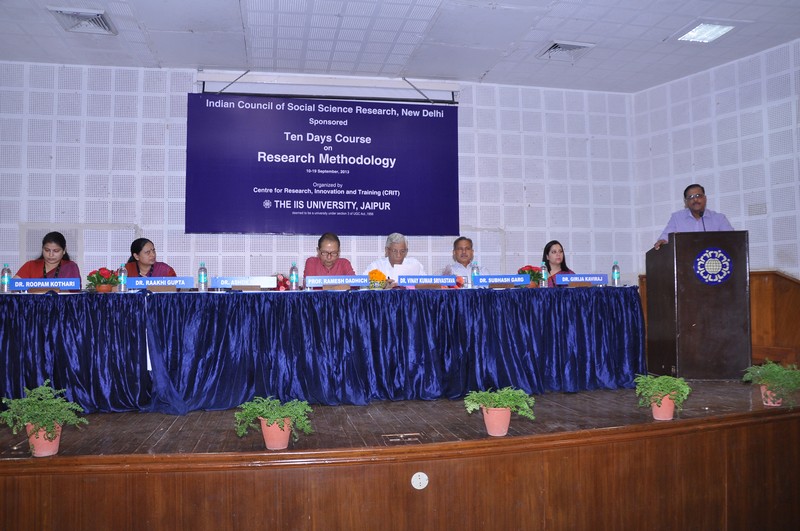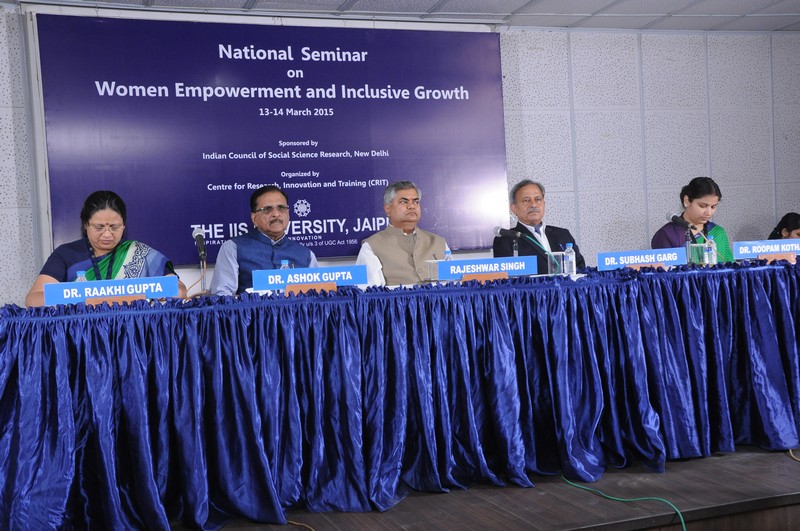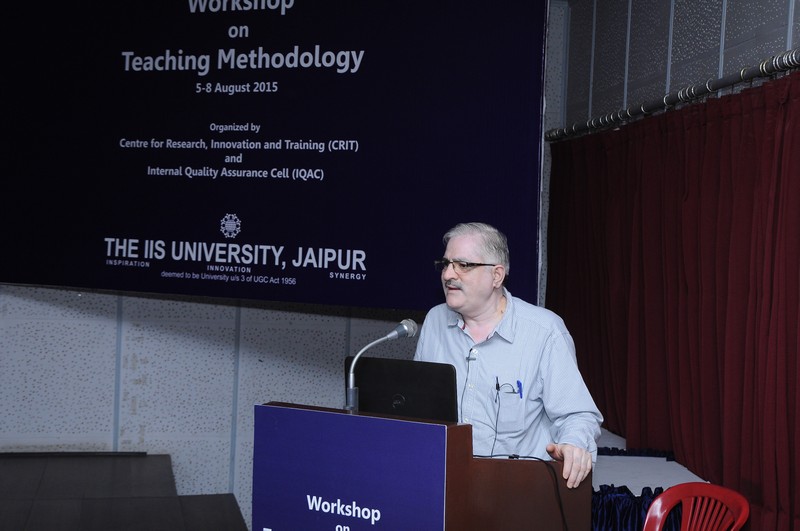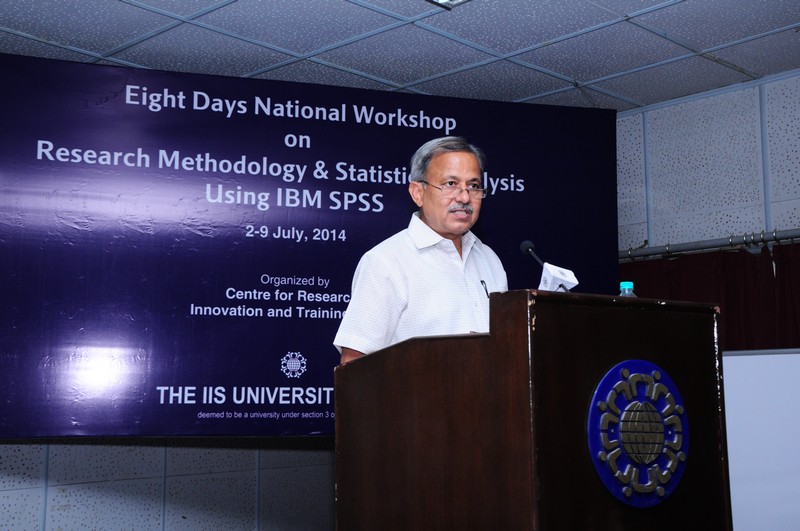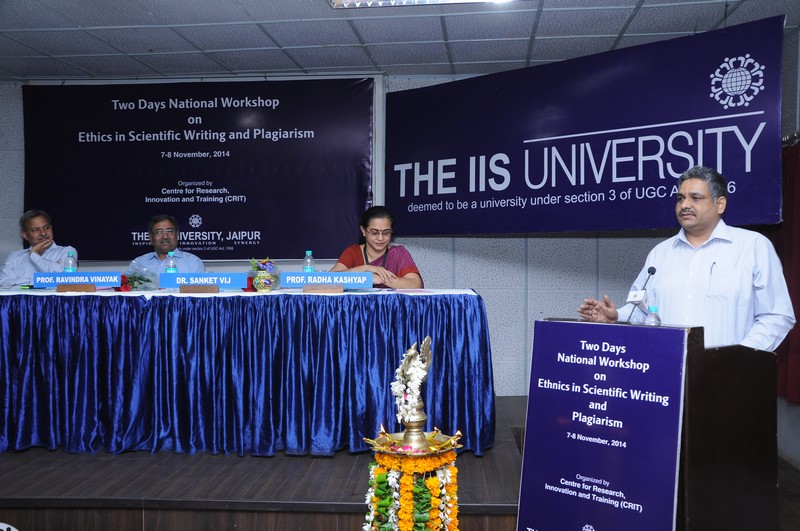DEAR COLLEAGUES
It gives us immense pleasure to inform you that a National Seminar on Women’s Employment, Entrepreneurship and Empowerment: Sustainable Pathways to Egalitarian Society' sponsored by ICSSR, New Delhi, is being organized by The Centre for Research, Innovation and Training (CRIT), The IIS University, Jaipur, on 30-31 January, 2017.
One of the most meaningful and famous quotes by Smt. Indira Gandhi for Women Empowerment is “To be liberalized, women must be free to be themselves in the context of their capacity and personality. Any society cannot progress if half of its members, the women, do not have equal opportunities and their talents and capabilities are ignored.” Women Empowerment is the process of challenging existing power relations and gaining control over resources in the society. Economic dependence of women is one of the major obstacles in the path of empowerment of women in contemporary Indian society. As per Census 2011, the workforce participation rate for females at the national level stands at 25.51% compared with 53.26% for males. In the rural sector, females have a workforce participation rate of 30.02% compared with 53.03% for males. In the urban sector, it is 15.44% for females and 53.76% for males (NSSO Report, 2013). This indicates that there is a marked difference in the work participation rates of males and females. As far as the work participation rate is concerned, the institutionalization of mother –housewife role is the primary reason for subordination of women in the occupational structure. Lack of mobility, invisibility and cultural taboos related to patriarchy are the other specific constraints faced by women. Moreover, women in India are not a homogenous group. There are urban women, rural women and tribal women. Each of these segments have different sets of structural and cultural problems. The status of rural and tribal women is lower than their urban counterparts, in terms of access to knowledge and resources. Women also tend to get displaced by new technologies and in this context skill development for employment and entrepreneurship assume key importance. The concept of women empowerment is rooted in the economic status of women. This status emerges with capacity building and skill development which promotes self-reliance. Women’s participation in the work force is regarded as an index of empowerment. The changing economic and social conditions in the society due to forces of globalization present new challenges and opportunities for women, which have to be dealt with in a pragmatic manner. Entrepreneurship and employment are critical to enhance the status of women. The state interventions to redress the problem of gender imbalance and gender mainstreaming have to be coupled with coordinated and concrete efforts from all segments of society. It is imperative to understand the opportunities and challenges of women’s employment and entrepreneurship in any evaluation of nature and pattern of social changes in the status of women in contemporary Indian society. The seminar has been planned to achieve the following objectives:
- To discuss the government policies and societal efforts to promote women entrepreneurship and employment.
- To explore the new avenues of employment of women in service sector.
- To explore sustainable pathways for development of egalitarian society.
- To address the social and economic issues pertaining to women empowerment.
This seminar will provide a forum for constructive dialogue, identification of opportunities available for women and integration of knowledge for empowering women.
